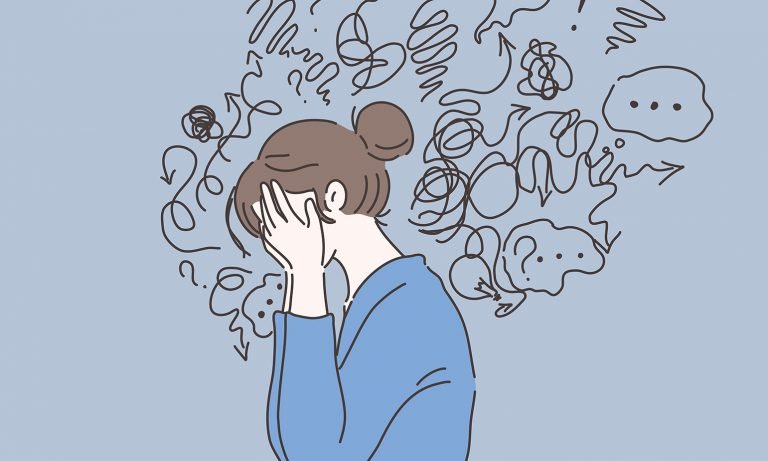Anxiety disorders are a mental illness that can make it hard to do things. You might feel sad or scared, but these feelings should not control you, they just tell you what you need help with. Anxiety disorders are treatable and the symptoms should not rule your life. Anxiety disorders can cause people to feel scared or worried. They can also feel sad or lonely. People who have anxiety disorders may worry a lot and sometimes they worry about things that don’t even make sense. Children might not want to go outside. If the routine changes, they might get upset or if they are in a new place.
Contents
- 1 What Are Anxiety Disorders?
- 1.1 Types Of Anxiety Disorders
- 1.2 Symptoms Of Anxiety Disorders
- 1.3 Causes Of Anxiety Disorders
- 1.4 Risk Factors Of Anxiety Disorders
- 1.5 Diagnosis Of Anxiety Disorders
- 1.6 Treatment Of Anxiety Disorders
- 1.7 Medication For Anxiety Disorders
- 1.8 Self-Care Tips For Anxiety Disorder
- 1.9 Helping Someone Suffering From Anxiety Disorders
- 2 Conclusion
- 3 A Word From Therapy Mantra
What Are Anxiety Disorders?
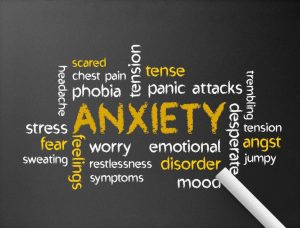
Anxiety disorders are a class of mental health conditions that cause severe anxiety. Anxiety is a normal human emotion, and it can be healthy to feel some amount of anxiousness in everyday life. However, when an individual person gets too anxious, it can make their life difficult. They might not be able to do things like go to work or school.
Types Of Anxiety Disorders
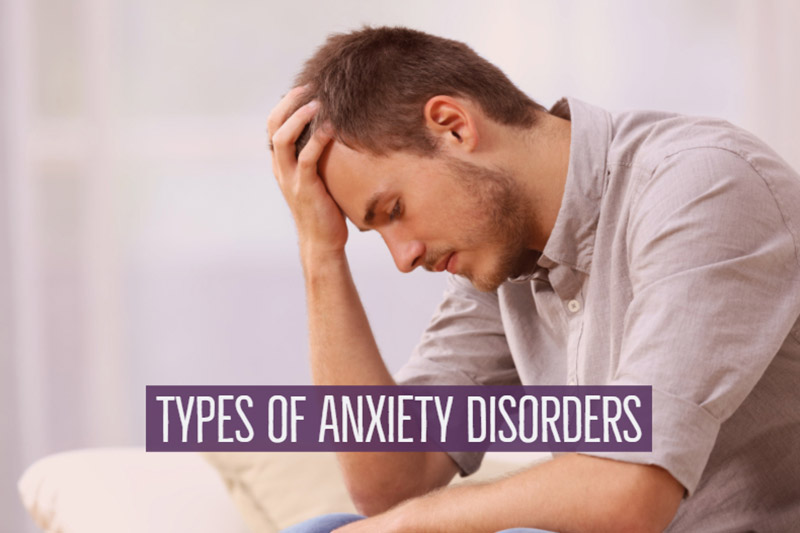
There are different types of anxiety disorders, and each one has unique symptoms.
Generalized Anxiety Disorder (GAD)
Anxiety is when you worry. A lot of people have it. It is not hard to get. You might even have it, and not know what it is called. This type of anxiety is called Generalized Anxiety Disorder (GAD). GAD means that you worry about things that are every day worries. That can be money, jobs, and relationships with other people. There are other types of anxiety disorders too like panic disorder, social anxiety disorder, and specific phobias.
Panic Disorder
One of the most common types of anxiety disorders is panic disorder. Panic attacks can be regular or occasional bouts that make you feel like you are dying or going crazy. Some symptoms of an anxiety attack are feeling like you can’t breathe, your heart racing, chest pain, feeling dizzy, and feeling like everything is unreal.
Social Anxiety Disorder
Social anxiety disorder is a fear of social situations or public speaking. People with this disorder may feel very anxious and uncomfortable in any situation where they are the focus of attention. They may also avoid socializing altogether.
Specific Phobias
Specific phobias are fears of specific objects or activities, such as spiders, heights, flying, or public speaking.
Symptoms Of Anxiety Disorders
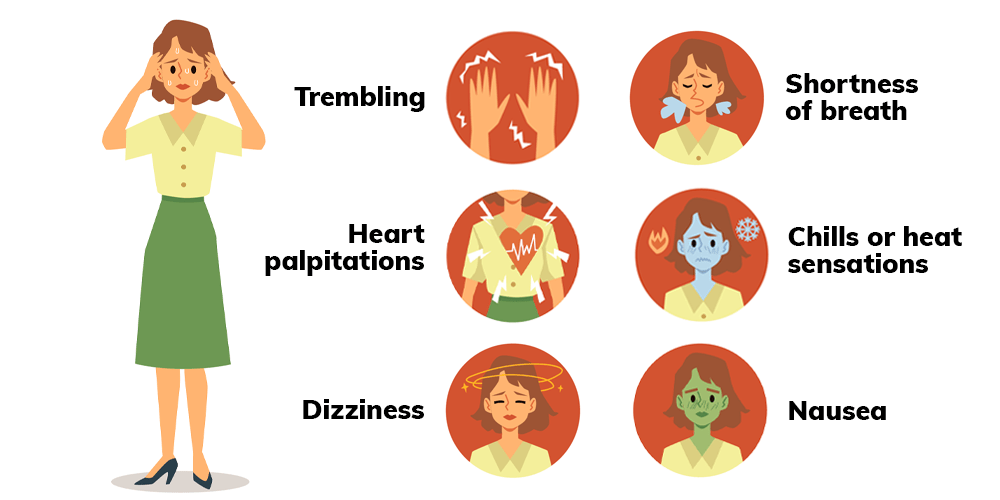
Anxiety disorders have different symptoms from person to person. They can also be categorized into physical, emotional, and cognitive symptoms.
Physical Symptoms
With anxiety disorders, you may have physical symptoms. These can include things like chest pain, shortness of breath, rapid heart rate, dizziness, headache, nausea or vomiting, and diarrhea. You may also have muscle tension.
Emotional Symptoms
People with anxiety disorders often experience intense emotions, such as fear, worry, and feeling out of control. They may also feel irritable or angry and have a hard time concentrating or sleeping.
Cognitive Symptoms
Anxiety disorders can also have cognitive symptoms. People then have negative thoughts and beliefs about themselves and the world. Some people feel like they are always in danger. They also feel like things will go wrong no matter what they do.
Causes Of Anxiety Disorders
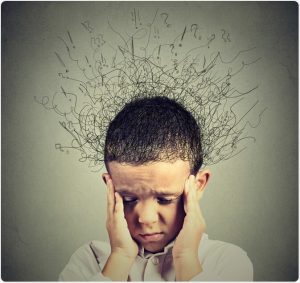
Anxiety disorders are caused by a combination of factors, including genetics and learned behaviors. Anxiety can also be triggered by stress or trauma in the past or present. If children see violence or are abused, they might have an increased risk for anxiety. They may also have an increased risk if their parents were alcoholics or too anxious.
Genetics
People with a parent or sibling who has an anxiety disorder may be more likely to develop one themselves.
Learned Behavior
People often learn to act in specific ways by doing what their parents do. This can make them more likely to be scared or worried as adults. Parental anxiety can also increase the child’s risk of developing social phobias and separation anxiety.
Stress
Anxiety disorders can be caused by stress in the individual’s life. This may include dealing with a traumatic event, such as a car accident, natural disaster, or abuse. It can also be from everyday stresses like work, school, or family problems.
Trauma
Some people develop anxiety disorders after experiencing a traumatic event, such as a natural disaster, abuse, or war. This type of anxiety can be very hard to deal with and may cause flashbacks, nightmares, and intense fear.
Risk Factors Of Anxiety Disorders
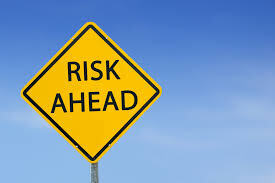
There are many risk factors that increase the likelihood of a person developing an anxiety disorder. These include:
- Age- Anxiety disorders tend to develop in early adulthood, although they can start at any time of life and continue into old age.
- Gender- Women are twice as likely as men to have panic attacks or social phobias. However, men are more likely to have generalized anxiety disorder and obsessive-compulsive disorder.
- Stressful life events- People who experience a lot of stress in their lives are more likely to develop an anxiety disorder. This may include traumatic events, such as abuse or violence, or everyday stresses like work or school.
- Genetics- Anxiety disorders can be passed down from parents to their children. If one parent has an anxiety disorder, the child has a 25% chance of developing one too. If both parents have an anxiety disorder, the child’s risk increases to 50%.
- Poor coping skills- People who do not know how to deal with stress or unpleasant thoughts and feelings are more likely to develop an anxiety disorder.
- Low self-esteem/ Negative thinking patterns- People who have low self-esteem, or feel like they are not good enough in some way, maybe more likely to experience excessive worry and fear than others. Self-confidence is very important for people with anxiety disorders because it helps them to feel stronger when facing their fears.
Diagnosis Of Anxiety Disorders
Diagnosis of an anxiety disorder is usually done by a mental health professional, such as a psychologist or psychiatrist. It can be hard to diagnose because the symptoms are very similar to other problems like depression and PTSD.
Treatment Of Anxiety Disorders
There are many different types of treatments for anxiety disorders. Some people go through counseling on their own or with a group. Others may take medication to help control their symptoms. There are also different types of therapy, including cognitive-behavioral therapy (CBT) and Exposure Therapy.
Counseling
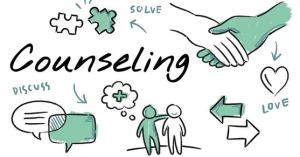
Mental health professionals can provide counseling to people with anxiety disorders. This type of therapy can help people understand their thoughts and feelings about the disorder. People might figure out how to feel better about their feelings. They also might find ways to get rid of anxiety.
Counseling can be done one-on-one or in groups. It may also involve family members if they are affected by the person’s behavior as well.
Cognitive Behavioral Therapy (CBT)
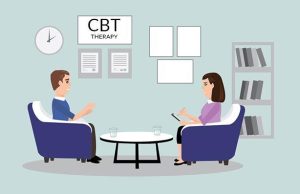
CBT is a type of therapy that can help people with anxiety disorders. This book was written to help people feel less sad when they are feeling overwhelmed. It gives them advice on how to change their thoughts so they don’t feel so bad anymore. This allows them to stop avoiding certain situations and start engaging in life again. CBT is a special kind of therapy. It helps you with your thoughts and feelings. You can use it to relax and feel better.
Also, cognitive-behavioral therapy is effective for many people who have anxiety disorders. But not everyone finds that it works the same way for them. The person’s response to treatment depends on their individual situation and experiences in life.
Exposure Therapy

This type of therapy helps people learn that something they are scared of is not as bad as they thought. It is good for helping people. Some people do this by playing the event in their heads. Others will try to have someone scare them or they can go do something that scares them.
Exposure therapy may help people with specific phobias, PTSD, and panic disorder. There are two types: In vivo desensitization involves gradually exposing people to what they are afraid of. In vitro desensitization uses mental simulations, such as imagining a feared situation or having someone else describe it out loud.
Exposure therapy is when you talk about your fear to help get rid of it. It is hard when you do this alone and without help. It should only be done with the help of mental health professionals.
Medication For Anxiety Disorders

There are many different types of medication that a person can take for anxiety disorders. Some people might need to take only one medicine while others will have to try several. It depends on what each person feels and if they have any other conditions, such as depression or ADHD.
Some of the most common types of medication used to treat anxiety disorders include:
- SSRIs (selective serotonin reuptake inhibitors) are a type of antidepressant that helps increase the amount of serotonin in the brain. This can help improve mood and reduce anxiety symptoms.
- Some types of antidepressant drugs, SNRIs can help your brain make more serotonin. They do this by making it more difficult for the body to absorb serotonin. Some medicines are used to treat anxiety disorders. They may work better than other medicines. If someone has depression along with their anxiety disorder, these medicines may work even better for them.
- Tricyclic antidepressants (TCAs) can reduce symptoms like mood swings and irritability, as well as anxiety. If people are taking medication for anxiety or depression, they might feel better. They may also want to keep taking it if the medicine is helping.
- Benzodiazepines work very fast. Many people use this medicine to treat panic attacks or other extreme forms of anxiety that happen suddenly. If you are taking these medicines every day, it can be addictive. They should only be taken for a short time to reduce the risk of addiction.
- Buspirone is not usually used on its own. But if people take it with another medication that treats anxiety, it can help with their feelings of general anxiety. Buspirone takes longer than benzodiazepines to work, but it has less risk of addiction and withdrawal.
- Some people use cannabis as a way to reduce anxiety or stress levels. It may cause feelings of relaxation, calmness, drowsiness, and even euphoria in certain cases. This can be helpful for reducing symptoms like racing thoughts or an increased heart rate. People do not agree on the use of cannabis. Some people might experience these side effects when they use it for medicinal purposes. Some people might not want to take a drug that comes from an illegal plant. They might feel uncomfortable about it.
Self-Care Tips For Anxiety Disorder
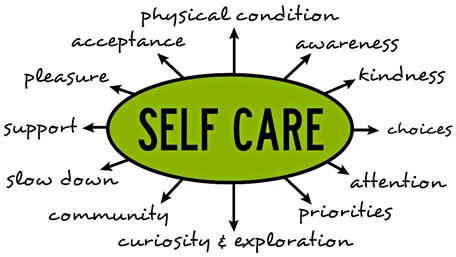
Some ways that people can take care of themselves is by doing some deep breathing exercises. They might want to listen to music or maybe read a book with their favorite characters in it if they feel down. Consequently, these things will help the person to relax and not worry about anything else for awhile
Other tips
- Exercise – Get moving! Exercise is a good way to treat anxiety. You can do it when you are taking medication for your anxiety too. It will help the side effects of the medication. The more you do, the longer and higher the quality of your life will be! So make time for exercise! We know you have things to distract yourself with; however, making exercise part of your daily routine is important. Put it on your calendar and make it happen.
- Avoid alcohol and caffeine – These can both increase anxiety symptoms.
- Get enough sleep – Most people need about eight hours of sleep each night, but this varies from person to person.
- Talk to someone you trust – Talking openly and honestly is key in managing any type of mental health disorder. Talk to somebody about your anxiety. This can be a friend, family member, therapist, or any other support system.
- Stay positive – This one is definitely easier in doing than how you do it, but focusing on the good things in life and maintaining healthy relationships will help to keep your mood up and your stress levels down.
- Make time for yourself – Don’t put so much pressure on yourself to constantly be productive. Every day, give yourself some time to do something you like. You can read a book, go for a walk or spend time with someone you love.
Moreover, it is important to know that there are many treatments and therapies that can help people. They can help them manage their anxiety disorders. The key is finding what works best for them and sticking with it. There is no one-size-fits-all answer, so be patient and keep trying until you find what works for you!
Helping Someone Suffering From Anxiety Disorders

If someone close to you is suffering from anxiety, it’s important that you are there for them. They might not want to talk about their feelings with others or seek professional help. But just being supportive can make all the difference in their recovery process.
Some ways that people can support those who are struggling include:
- Listen and don’t judge – Just listen to what they have to say. Don’t put pressure on them or offer advice unless they ask for it. It is important to let people you love know that you support them. Also, it can be hard to understand what they are going through. It will take time. But that does not mean that you don’t care or won’t try.
- Encourage professional help when needed – Even supportive friends can only do so much. Encourage the person you know to seek professional help if they are resistant or not getting any better.
- Help them find support groups – Whether it’s online, in-person, phone app (like Caring Bridge), social media, etc., there are many ways that people can connect with others who have gone through similar experiences and can offer support.
- Be there for them – This one is the most important! Just be there for them when they need you, whether it’s to talk or just to listen. Let them know that you care and will always be there for them.
Anxiety disorder can feel very isolating, but it is important to remember that you are not alone. If you have anxiety, the good news is that you can manage it.
Conclusion
Anxiety is a common mental health disorder. Stress can cause anxiety and other problems. To manage your stress levels, you should do things that help you relax. The National Institute of Mental Health has some tips about how to keep your stress levels low. These are important to help you prevent an anxiety disorder. If you are experiencing symptoms of any kind, go to the doctor. Furthermore, the doctor will tell you what is wrong. You should be careful if you think that someone close to you is not okay. If they have a mental illness, ask them how to help.
A Word From Therapy Mantra
Your mental health — Your psychological, emotional, and social well-being — has an impact on every aspect of your life. Positive mental health essentially allows you to effectively deal with life’s everyday challenges.
At TherapyMantra, we have a team of therapists who provide affordable online therapy to assist you with issues such as depression, anxiety, stress, workplace Issues, addiction, relationship, OCD, LGBTQ, and PTSD. You can book a free therapy or download our free Android or iOS app.
